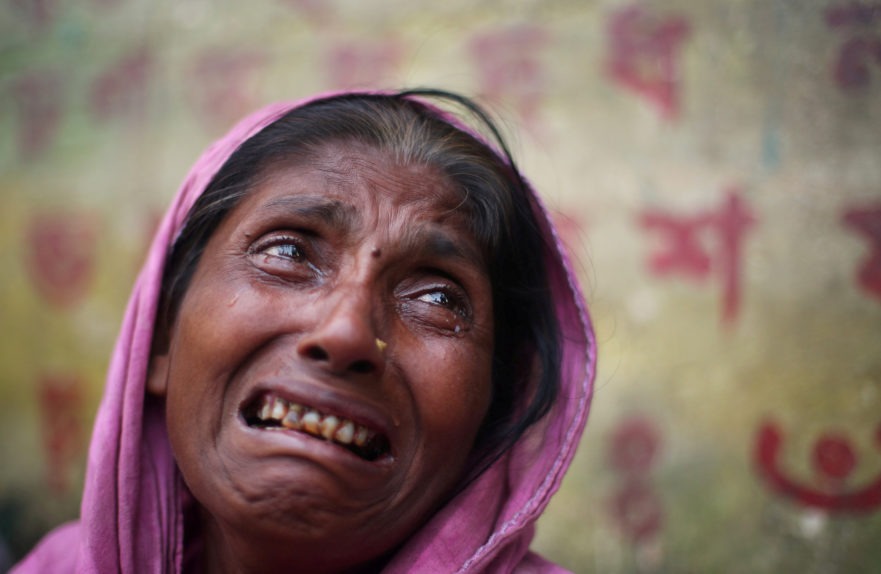June 3, 2020
The United States Commission on International Religious Freedom (USCIRF) recently released the 2020 Annual Report focused on he U.S. government policymakers on the most severe violations of religious freedom globally. The report identifies countries that USCIRF finds meet the statutory criteria for the State Department to designate as “countries of particular concern” (CPCs) or include on its Special Watch List (SWL) pursuant to the International Religious Freedom Act (IRFA).
A notable addition to USCIRF’s latest report is a list of significant events and trends that have important transnational or international impacts. To learn more about specific incidents or trends highlighted below read USCIRF’s 2020 Annual Report.
Chinese Influence on Religious Freedom Internationally. The Chinese government’s actions have resulted in the persecution of religious groups within China’s borders and also have negatively affected religious freedom conditions internationally. Chinese diplomats continued to subvert the international human rights system by opposing United Nations (UN) resolutions condemning human rights violations and by arguing that economic progress should precede respect for individual rights. The Chinese government has exerted pressure on governments— particularly in Central and South Asia—to target activists criticizing the Chinese government’s religious persecution and to repatriate refugees fleeing such persecution. China also exported surveillance technology and systems training to more than 100 countries. Although some recipients of this technology have used it for legitimate public policy goals, others have used it to target political opponents or oppress religious freedom.
Rising Anti-Semitism in Europe and Elsewhere. The global Jewish community is experiencing a further increase in anti-Semitic incidents, including discrimination, defamation, Holocaust denial, hate speech on the Internet, and vandalism of synagogues, cemeteries, and other community institutions. Anti-Semitism is common in countries that USCIRF recommends for designation as CPCs or placement on the SWL—such as Iran and Saudi Arabia—but is also increasingly common in other countries, including Argentina, France, Germany, Italy, United Kingdom, and Sweden.
New or Increased Penalties for Blasphemy. USCIRF is currently aware of at least 84 countries that have laws against blasphemy. Additionally, authorities in some countries utilize broad laws that prohibit other forms of speech— instead of specific blasphemy laws—to target speech deemed blasphemous. Many of these laws allow courts to impose lengthy prison sentences on individuals found guilty. Countries with newly implemented legislation include Bangladesh, Brunei, and Singapore.
Targeting of Religious Groups for Their Political Advocacy. In certain situations, a government’s repression of a religious group or its followers for political or social advocacy has implications for religious freedom. In some countries, authorities have cracked down on or publicly attempted to stigmatize entire religious communities because members criticized—or were perceived to have criticized— government policies. Governments engaged in collective retaliation include India, Iran, Nicaragua, Cameroon, and the Philippines.
The Rise of Ethnoreligious Nationalism. In addition to the ongoing ethnoreligious nationalism in countries like Burma, India and Russia, 2019 saw a marked rise in ethnoreligious nationalism, particularly in South Asia. Hardliners and political opportunists in Nepal, Sri Lanka, and Thailand attempted to redefine the national identity on strict ethnoreligious grounds, excluding religious minority communities.
Spike in Attacks on Places of Worship or Holy Sites. Attacks on places of worship occurred with greater frequency around the globe. Places of worship are often harmed more subtly through the misuse of registration procedures to prevent their construction or renovation, or the malicious surveillance of holy sites to intimidate worshippers. Different types of buildings and properties that are significant to religious communities, such as cemeteries, monasteries, or community centers, also have been targeted. Attacks in New Zealand, Sri Lanka and France generated global outrage in 2019.
Exportation of Religious Intolerance. Last year some governments exported intolerant religious interpretations that called for violence and severe persecution of those with different religious beliefs. Governments export these interpretations in order to build a global community of like-minded people, and to frame themselves as guardians of the religion. Among other governments, Saudi Arabia and Iran stand out as countries that actively export their religious beliefs abroad.

